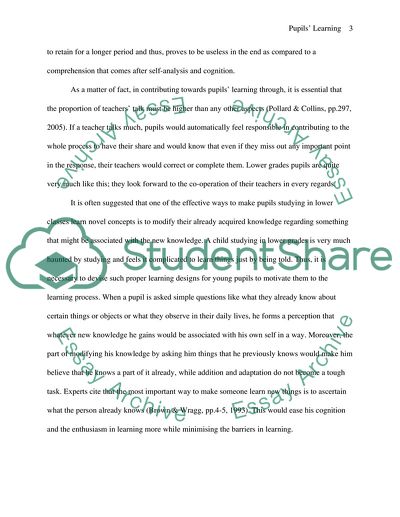Cite this document
(Knowledge in Pupils Mind Essay Example | Topics and Well Written Essays - 1750 words, n.d.)
Knowledge in Pupils Mind Essay Example | Topics and Well Written Essays - 1750 words. https://studentshare.org/education/1575015-how-does-effective-questioning-contribute-to-pupils-learning-give-classroom-primary-examples-to-support-your-answers
Knowledge in Pupils Mind Essay Example | Topics and Well Written Essays - 1750 words. https://studentshare.org/education/1575015-how-does-effective-questioning-contribute-to-pupils-learning-give-classroom-primary-examples-to-support-your-answers
(Knowledge in Pupils Mind Essay Example | Topics and Well Written Essays - 1750 Words)
Knowledge in Pupils Mind Essay Example | Topics and Well Written Essays - 1750 Words. https://studentshare.org/education/1575015-how-does-effective-questioning-contribute-to-pupils-learning-give-classroom-primary-examples-to-support-your-answers.
Knowledge in Pupils Mind Essay Example | Topics and Well Written Essays - 1750 Words. https://studentshare.org/education/1575015-how-does-effective-questioning-contribute-to-pupils-learning-give-classroom-primary-examples-to-support-your-answers.
“Knowledge in Pupils Mind Essay Example | Topics and Well Written Essays - 1750 Words”. https://studentshare.org/education/1575015-how-does-effective-questioning-contribute-to-pupils-learning-give-classroom-primary-examples-to-support-your-answers.


